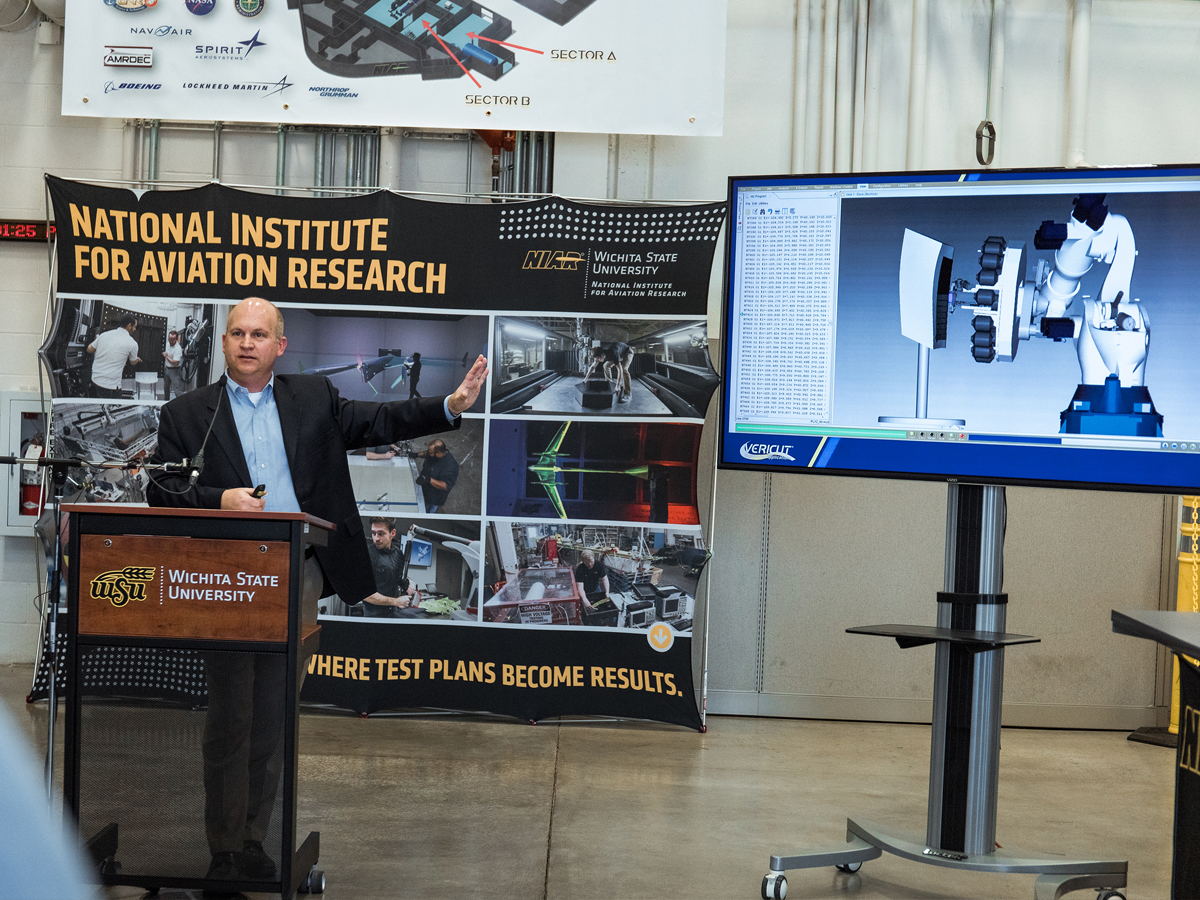A recent grant will allow Wichita State’s National Institute for Aviation Research to speed up the manufacturing process for aerospace and defense industries.
The $2 million grant, awarded by the U.S. Economic Development Association (EDA), will fund the purchase of equipment for the research, development and inspection of automated manufacturing processes for composite materials.
Composites include metals, alloys, plastics and any other combination of manufactured materials. They are known for their light weight and great strength, and are now frequently used in the aircraft structural components.
The institute’s Advanced Technology Laboratory for Aerospace Systems (ATLAS) will lead a partnership of multiple government agencies, aircraft manufacturers, suppliers and other universities in the program. In addition to the EDA’s support, ATLAS has received funding from the Office of Naval Research and the State of Kansas for composite manufacturing equipment.
The equipment will be used in an in-process inspection system to automatically identify common manufacturing defects. To avoid future defects, the system’s computer management system uses machine learning to take corrective actions on subsequent manufacturing runs to improve material quality.
Institute senior research scientist Waruna Seneviratne will lead the lab.
“ATLAS provides a neutral ground for manufacturers to research advanced manufacturing concepts with various machine, software and processing options,” said Seneviratne. “It will also educate and train student Factory of the Future engineers on advanced manufacturing concepts.”
Factory of the Future, also known as Industry 4.0, is an international effort to modernize manufacturing spaces with computerized processes and automated systems. It complements the institute’s mission to maintain Wichita’s technological and procedural edge in aerospace manufacturing, and helps fulfill WSU’s role as an applied learning center and economic driver.
Read the original release

 Courtesy: National Institute for Aviation Research
Courtesy: National Institute for Aviation Research